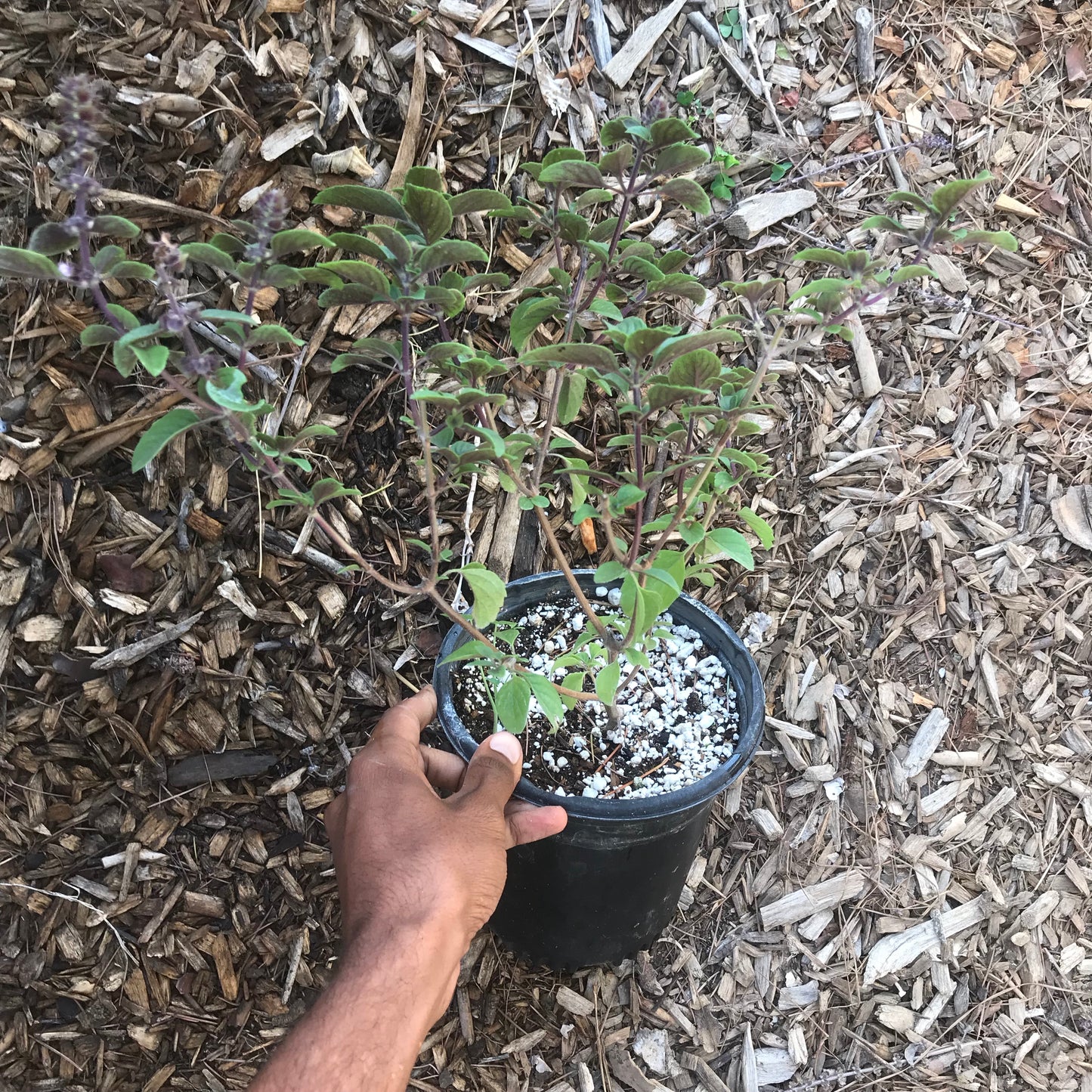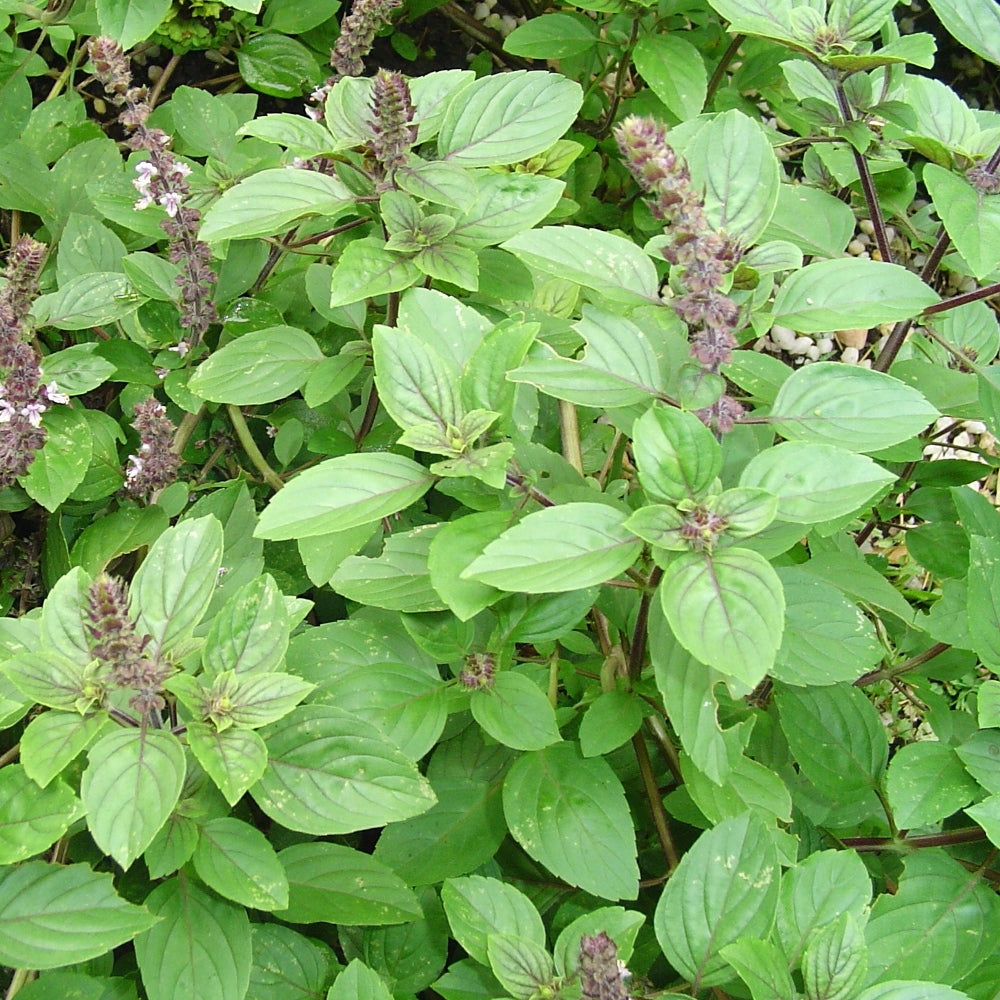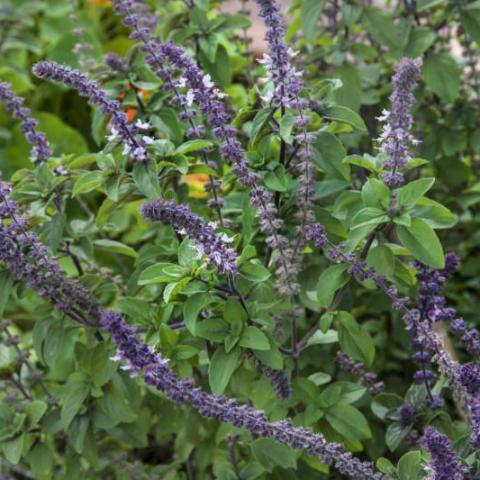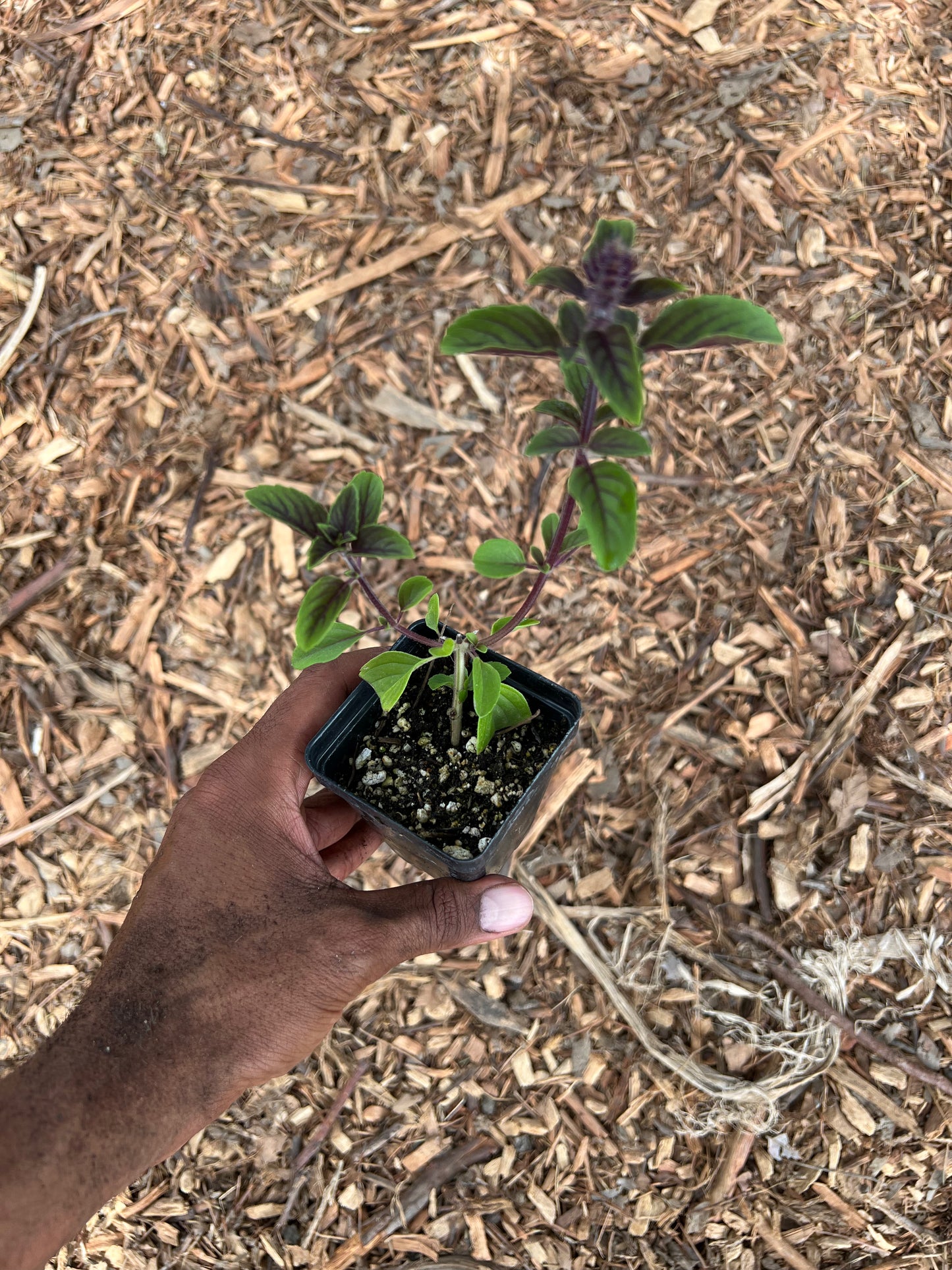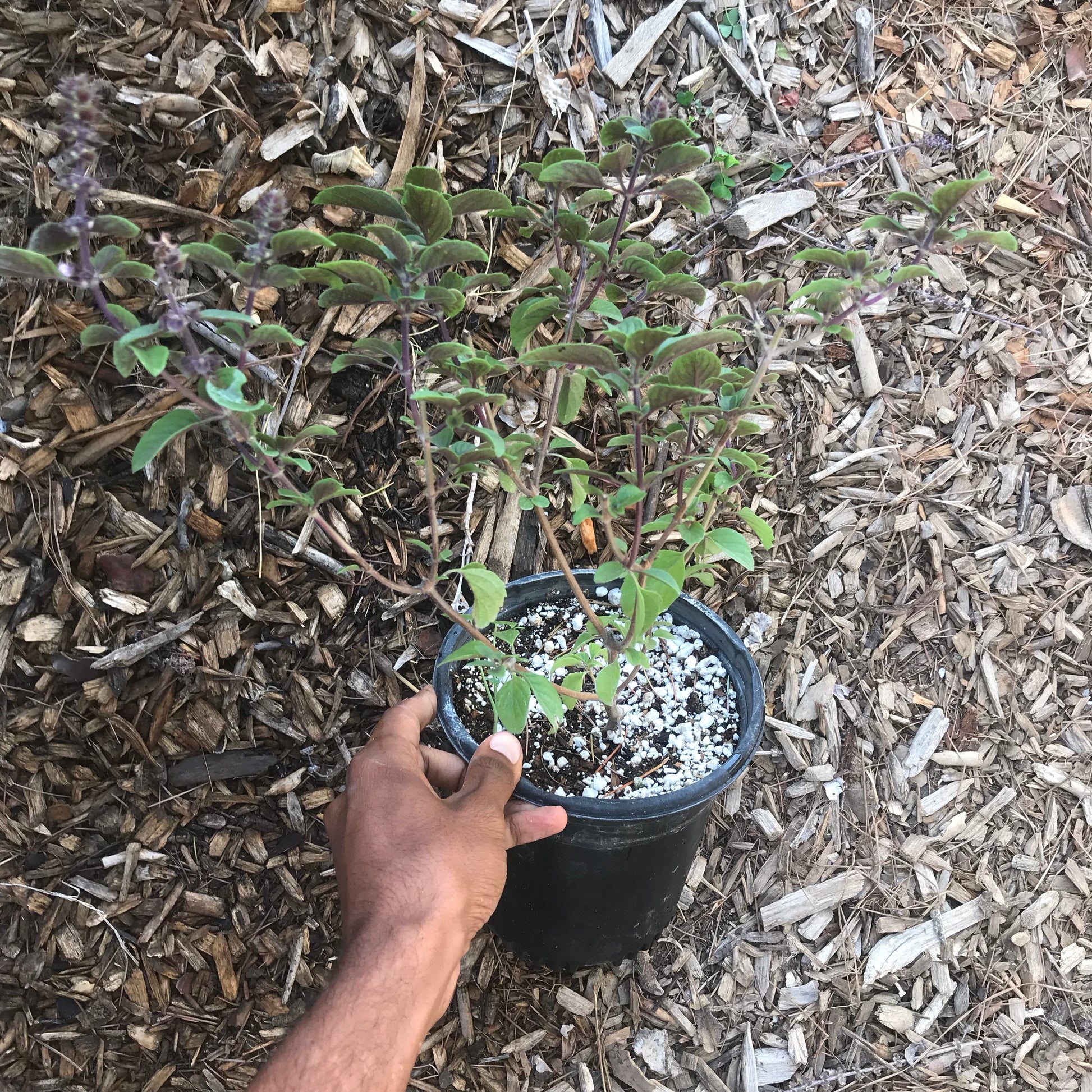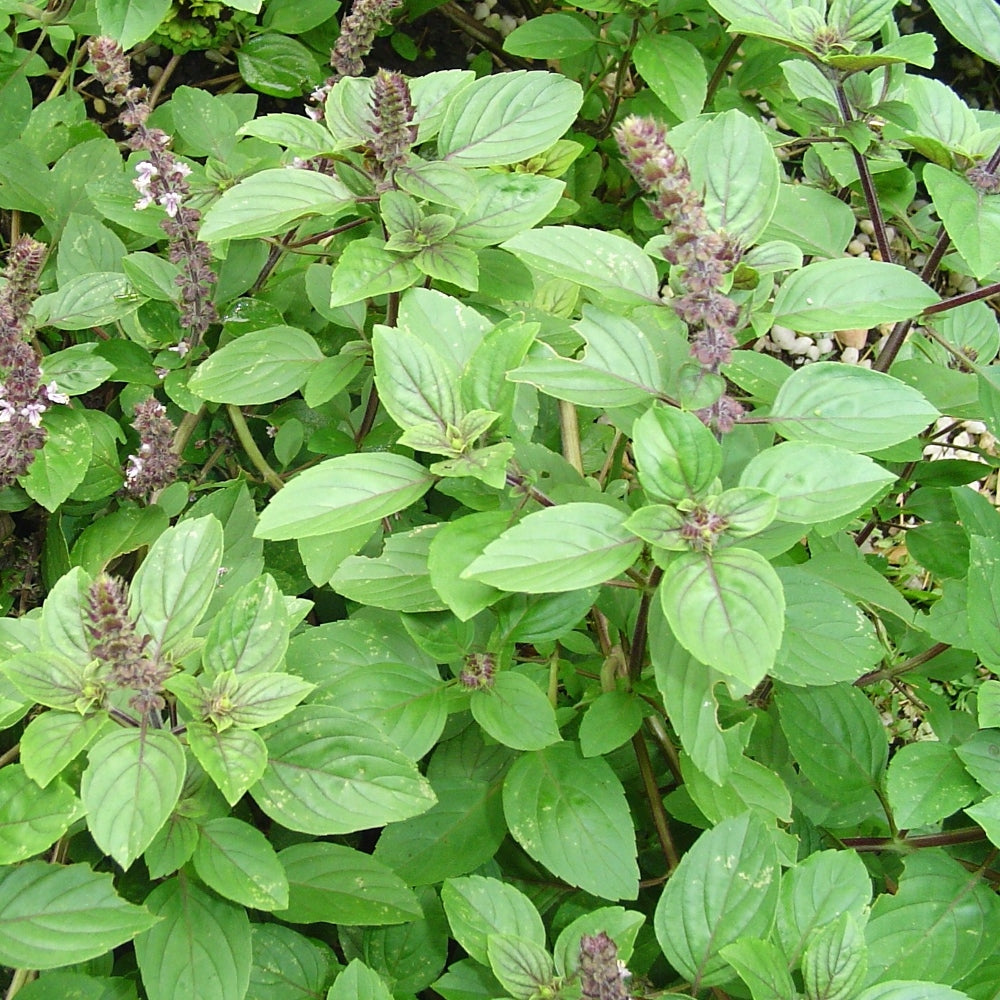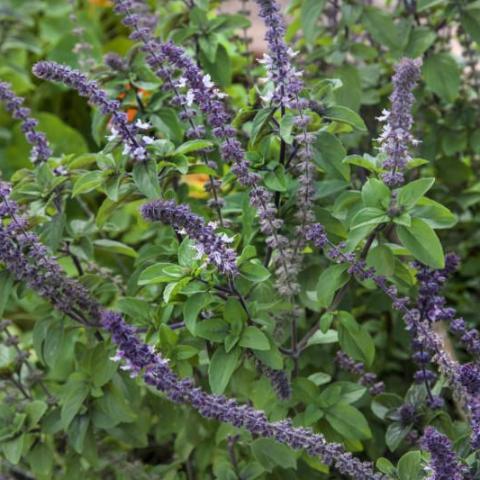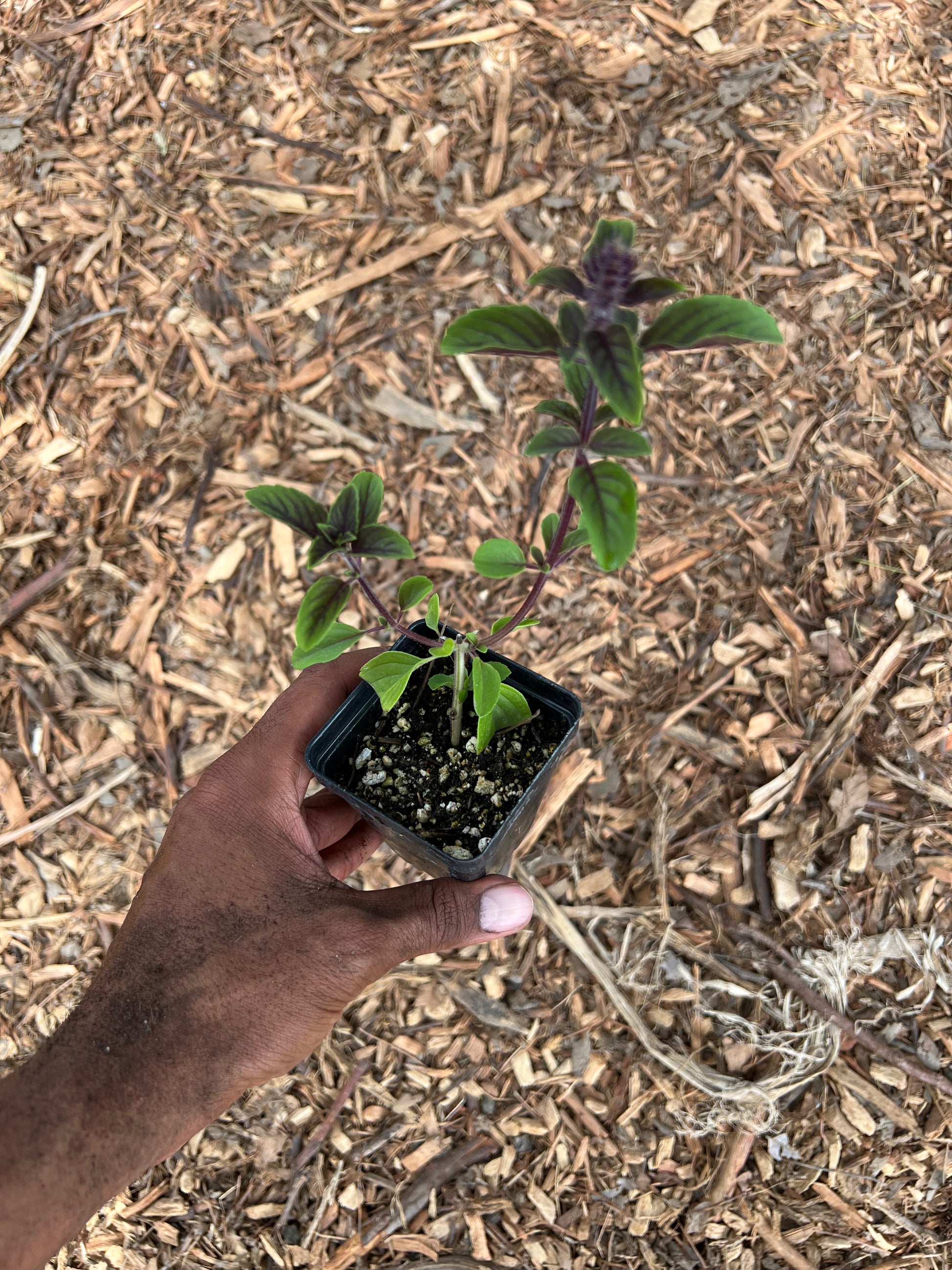African Blue Basil
African Blue Basil
3 inch Pot - 8 to 12" tall plant in 6" diameter x 7" tall pot. SHIPPABLE
1 gallon Pot - 8 to 16" tall plant in 5" x 5" x 6" tall pot. SHIPPABLE
Small Tree Pot - 8 to 16" tall plant in 5" x 5" x 6" tall pot. SHIPPABLE
Large Tree Pot - 8 to 16" tall plant in 5" x 5" x 12" tall pot. SHIPPABLE
3 gallon Pot - 18 to 36" tall plant in 10" diameter x 8" tall pot. IN STORE ONLY
5 gallon Pot - 30" to 60" tall plant in 11" diameter x 10" tall pot. IN STORE ONLY
15 gallon Pot - 60" to 75" tall plant in 17" diameter x 15" tall pot. IN STORE ONLY
Couldn't load pickup availability
African blue basil is sterile and Pollinators love the flowers. This is a must for beekeepers, and is always buzzing with bees. Like other basil varieties, African basil likes soil amended with compost that is well drained. Plants form woody stems, this plant is frost tender and needs winter protection. The tasty leaves can be used in pesto, salads, pasta, cocktails or anywhere else you’d use basil.
CARE INSTRUCTIONS
Plant in well-draining soil. It does well when given compost and/or regular fertilizer. Flowers do not have to be pruned to extend the life of the plant, but they can be pruned for bushier growth and a cleaner look.
ABOUT THIS PLANT
Botanic Name: Ocimum kilimandscharicum × Ocimum basilicum
Tongva Name: N/A
Common Names:
African Blue Basil,
Lifespan: Perennial
Hardiness Zone: 8-10
Growth Structure: 2-3 ft tall bush, can be pruned smaller or taller
Fertility Preference:
★
★
★
★
★
Water Preference:
★
★
★
★
★
Sun & Light Preference:
★
★
★
★
★
Cold Tolerance: 32°F
Flowers? Yes, Purple
Edible? Yes
Native to: s noted in its scientific name, it is a cross between Ocimum kilimandscharicum, a camphor basil native to East Africa, and a cultivar of basilicum, 'Dark Opal', also native to Africa and to Southern Asia.
Recommended Size for Container Growing: 5 gallon
